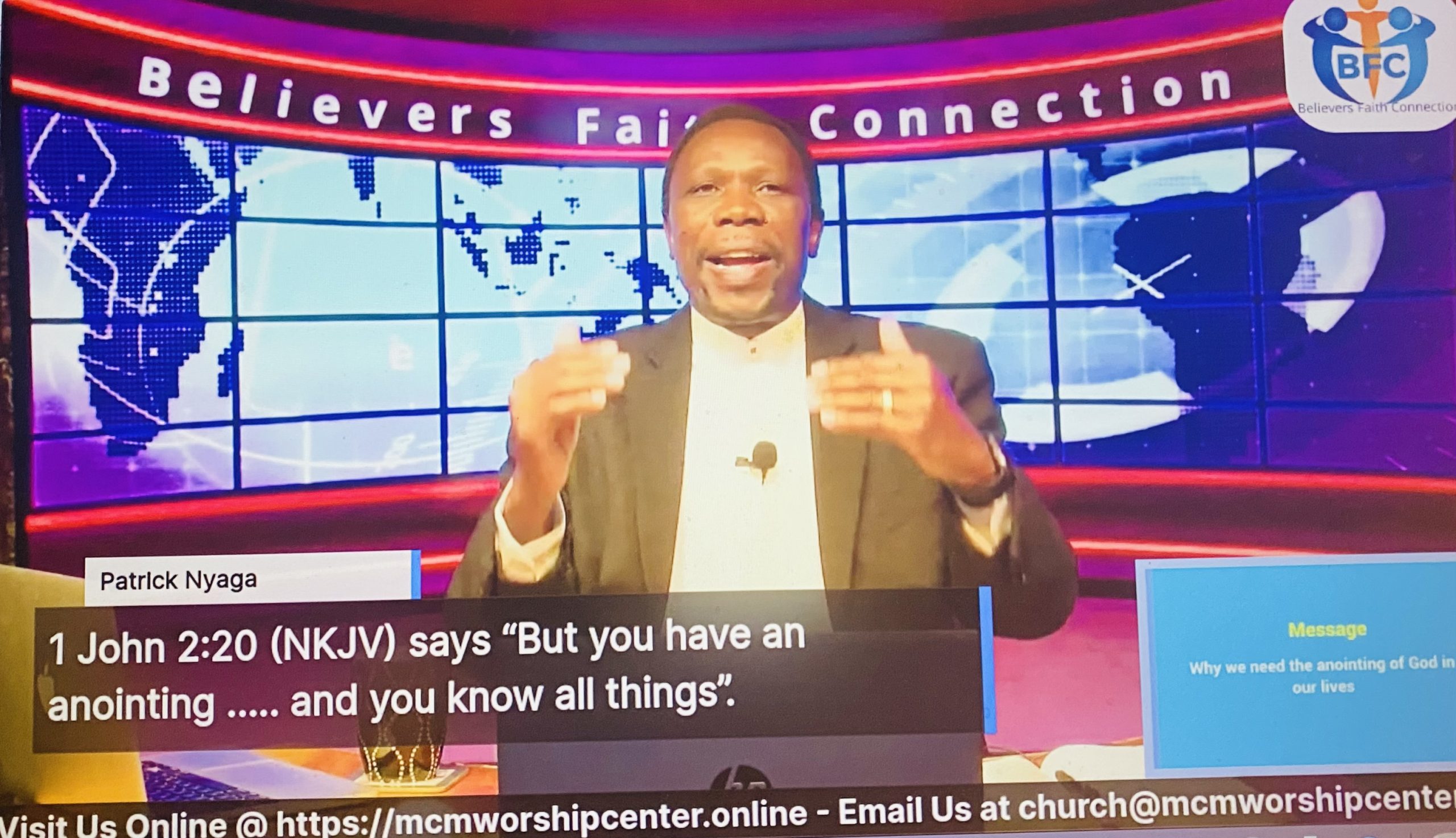There are many people who question whether or not the office of the apostle even exists today. The answer is – YES it does!
What marks do we look for in an apostle today?
- First and foremost a preacher or a teacher of the Word .
- Outstanding spiritual gifts.
- Deep personal experience.
- Power and ability to establish churches.
- Able to provide adequate spiritual leadership.
Acts 13:1 reads, “Now there were in the church that was at Antioch certain prophets and teachers; as Barnabas, and Simeon …and Lucius …and Manaen …and Saul.”Each of these men was either a prophet, or a teacher, and or a prophet and a teacher (one can stand in more than one office). So we know from study of the Scriptures that Paul was both a prophet and a teacher. Acts 14:14 call him an apostle. He became an apostle when God set him in that office.
Brother Hagin used to say this and I believe him; “Don’t get taken up with names and titles. If I didn’t know what God called me to, I wouldn’t bother a minute about it. If I sensed the call on the inside of me, I would just prepare myself in the Word and preach and teach, and then let God eventually set me in the office He has for me”.
Barnabas and Paul were not set in the office of apostle to begin with, but God eventually did set them there. And also remember this: God rewards faithfulness. He doesn’t reward offices. A prophet won’t receive any more reward in that day than a janitor who was faithful in his ministry of helps. Higher offices do not receive any more reward; there is just a greater responsibility. God rewards faithfulness!
Attributes of an Apostle
An apostle is a champion of faith. If the Bible tells them what needs to be done, they believe it and act upon it. They are swift to get the job done when asked by the Lord. The promises God made to Abraham and his seed are real to the apostle, and are expected to happen, because it is God who made these promises. Their Father said so, and that’s good enough for them. They have the anointing to unite the Body of Christ and walk as God’s commanders and chiefs, uniting God’s armies and teaching them to trust and follow God. They walk in a spiritual God-given authority to bring freedom to the flock through the ministry of Isaiah 61, thus helping the church to experience the feast of atonement, and victory over the powers and principalities, the rulers of darkness and evil spirits that have been holding them captive. In fact, the ministry of the apostle will have a large part in preparing the church to experience the final feasts. God will soon be receiving a Bride without spot or wrinkle, and separated from the world because of the uncompromising nature of those called to the apostolic office.
The apostles, just like the other offices, must die to themselves so Christ can be who He is in them. They must be separate, set aside, and able to stand adversity without being discouraged in order to keep the flock of God together when under trial.
Classes of Apostles
There are four main classes of apostles
1. Jesus the Chief Apostle
Jesus Himself is the Chief Apostle and stands in a class by Himself. We find in Hebrews 3:1that Jesus is called the Apostle 22 and High Priest of our profession. He was a “Sent One” from the Father to make atonement for the sins of the world. No other apostle (or sent one) will ever have that calling.
2. Apostles of the Lamb
These were the twelve apostles who were eyewitnesses of Jesus’ life, ministry, death, burial, and resurrection (Acts 1:21,22). This was their purpose – to witness Jesus’ earthly ministry and to give testimony of His ministry to the world. No one, not even Paul, could be an apostle in the sense the original twelve were.
According to the Book of Revelation, there are only twelve Apostles of the Lamb (Rev. 21:14). The also Bible gives the qualifications for these original twelve Apostles of the Lamb when they were to select one to take Judas’ place.
ACTS 1:15-22 declares;
15 And in those days Peter stood up in the midst of the disciples, and said, (the number of names together were about an hundred and twenty,)
16 Men and brethren, this scripture must needs have been fulfilled, which the Holy Ghost by the mouth of David spake before concerning Judas, which was guide to them that took Jesus.
17 For he was numbered with us, and had obtained part of this ministry.
18 Now this man purchased a field with the reward of iniquity; and falling headlong, he burst asunder in the midst, and all his bowels gushed out.
19 And it was known unto all the dwellers at Jerusalem ; insomuch as that field is called in their proper tongue, Aceldama, that is to say, The field of blood.
20 For it is written in the book of Psalms, Let his habitation be deso- late, and let no man dwell therein: and his bishop rick let another take.
21 Wherefore of these men WHICH HAVE COMPANIED WITH US ALL THE TIME THAT THE LORD JESUS WENT IN AND OUT AMONG US,
22 BEGINNING FROM THE BAPTISM OF JOHN, UNTO THAT SAME DAY THAT HE WAS TAKEN UP FROM US, MUST ONE BE ORDAINED TO BE A WITNESS WITH US OF HIS RESURRECTION.
To be one of the twelve Apostles of the Lamb, one had to have accompanied them – the apostles and Jesus – all the time Jesus went in and out among them for the three and a half years of His ministry. Paul was not with them. The original twelve were sent ones to be eyewitnesses of the ministry, the works, the life, death, burial, resurrection, and ascension of the Lord Jesus Christ. They stood in a place no other apostles or ministries can ever stand
3) New Testament Apostles
This includes Paul, Barnabas, and the other apostles of the New Testament. In addition to calling Jesus Christ an Apostle, and the twelve Apostles of the Lamb, the New Testament calls several others apostles:
- Barnabas and Paul (Acts 14:14). 23
- James the Lord’s brother (Gal . 1:19).
- Andronicus and Junia (Rom.16:7).
- Silvanus and Timotheus (1 Thess. 1:1;2 :6). 5. Apollos (1 Cor.4:4-
- Two unnamed brethren (2 Cor.8:23).*
- Epaphroditus(Phil.2:25).*
*The word translated “messenger” in the above Scripture references is the same Greek word translated “apostle” elsewhere. It can also mean a representative or a dele- gate.
The New Testament apostles were not apostles in the same sense that the twelve Apostles of the Lamb were.For one reason, they were not eyewitnesses of Jesus’ life and ministry. Second, they seemed to have more limited callings. Paul, for example, was an apostle (a sent one) to the Gentiles only (see 2 Tim. 1:11). There is much talk today about the need for modern-day apostles to lay the foundation for the Church. But the foundation of the Church Universal has already been laid! The Apostles of the Lamb and the other apostles of the New Testament did this work.
Paul explains this in First Corinthians 3:10:
10 According to the grace of God which is given unto me, as a wise masterbuilder, I HAVE LAID THE FOUNDATION, and another buildeth thereon . But let every man take heed how he buildeth there- upon.
EPHESIANS 2:20
20 And are built upon THE FOUNDATION OF THE APOSTLES and prophets, Jesus Christ Himself being the chief corner stone. The Apostles of the Lamb and the other New Testament apostles laid the foundation of the Church by giving testimony of Jesus’ earthly mission, by being the earliest pioneers and preachers of the gospel, and by receiving the Word of God and recording it in written form in what we now know as the New Testament. Modern-day apostles are not called to lay the foundation of the Church. They have an entirely different calling and mission.
4. The Apostles of Today
There are no apostles today in the three classes listed above. There are no foundation-laying apostles today. If the apostles of the New Testament did not lay the foundation then we need modern-day apostles to do it, then we need a new cornerstone as well. BUT that is not true. The work of the apostle today is to found and establish individual local churches throughout the world; to go into new territory and pioneer churches where there are no churches.
EPHESIANS 4:8,11-13
8 Wherefore he saith, When he ascended up on high, he led captivity captive, and gave gifts unto men….
l And he gave some, apostles; and some, prophets; and some, evangelists; and some, pastors and teachers; 12 For the perfecting of the saints, for the work of the ministry, for the edifying of the body of Christ: 13 Till we all come in the unity of the faith, and of the knowledge of the Son of God, unto a perfect man, unto the measure of the stature of the fullness of Christ.
Click here to learn further about the “Purpose of the Five-Fold-Ministry”
Visit us on Facebook – Please “Like and Follow”
Click the links below to see our latest posts..
Download Audio
Download PDF









